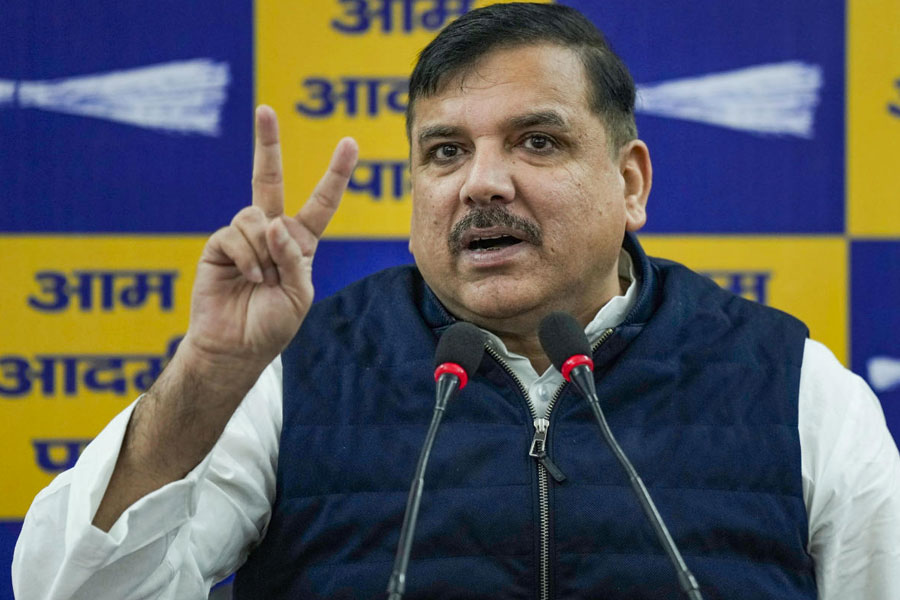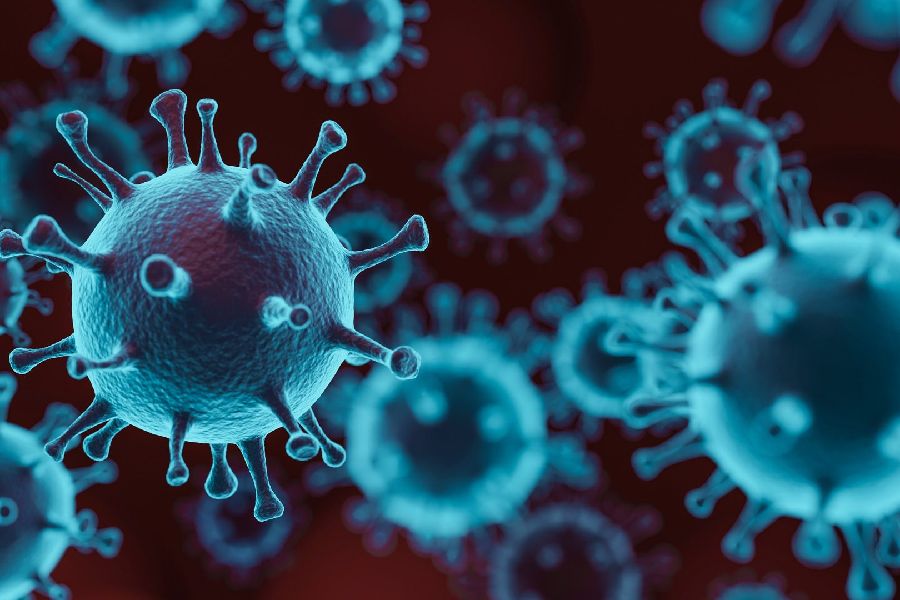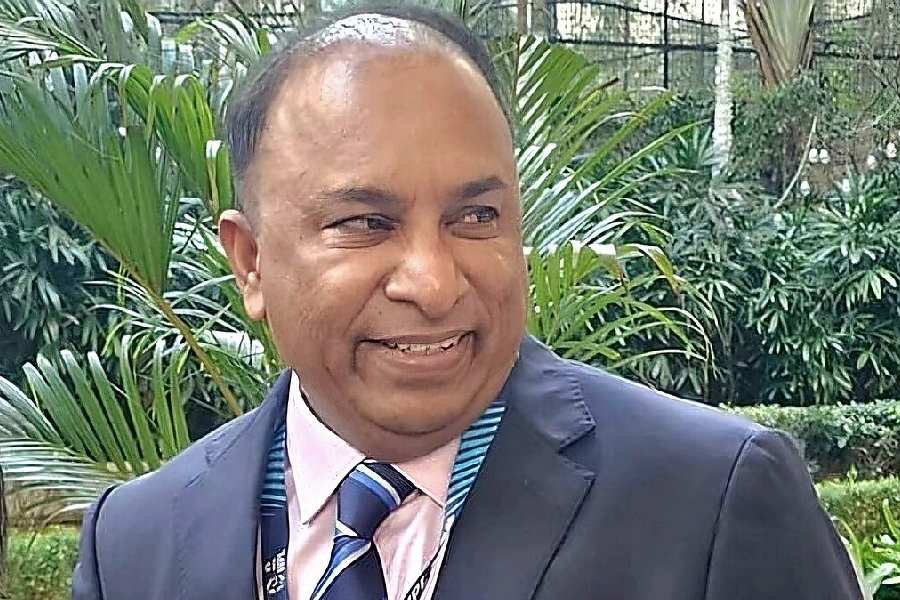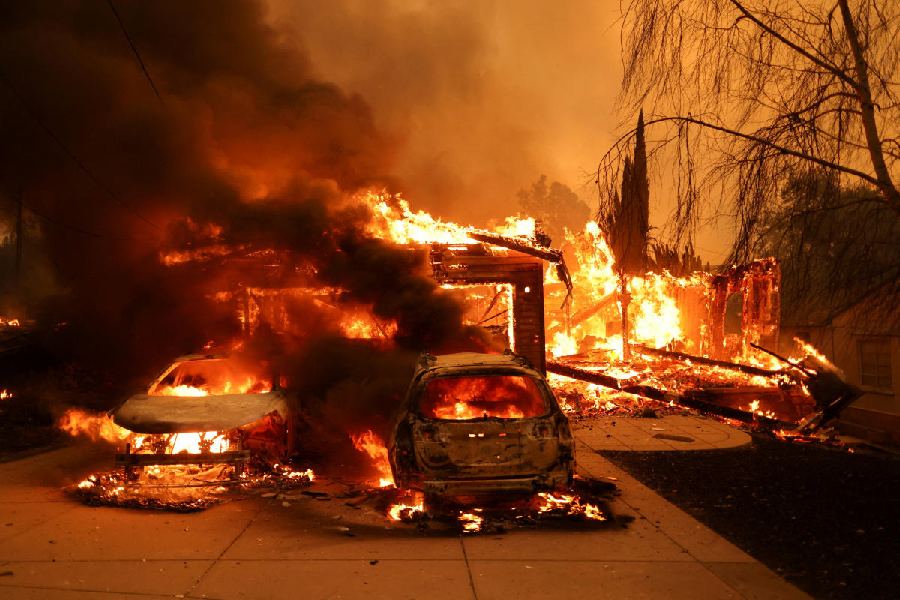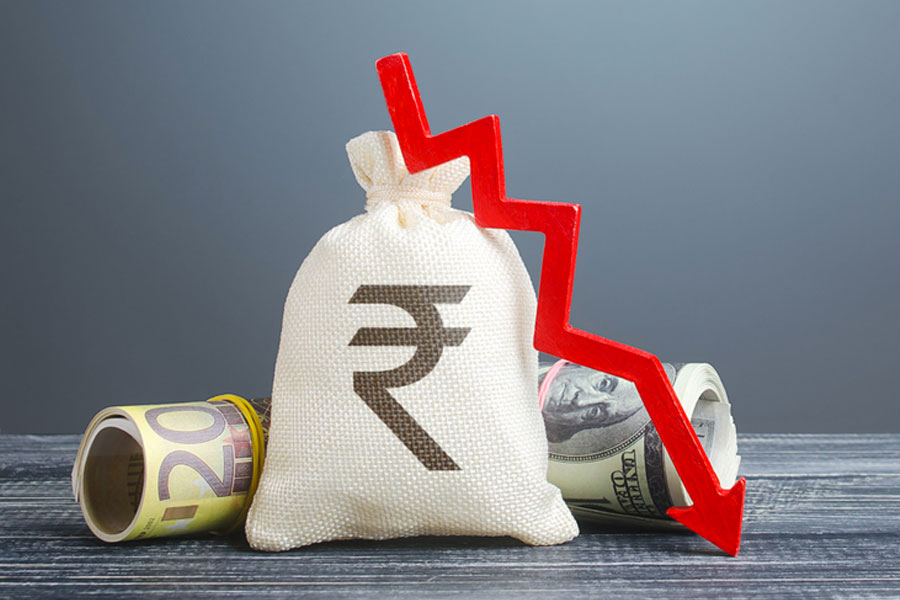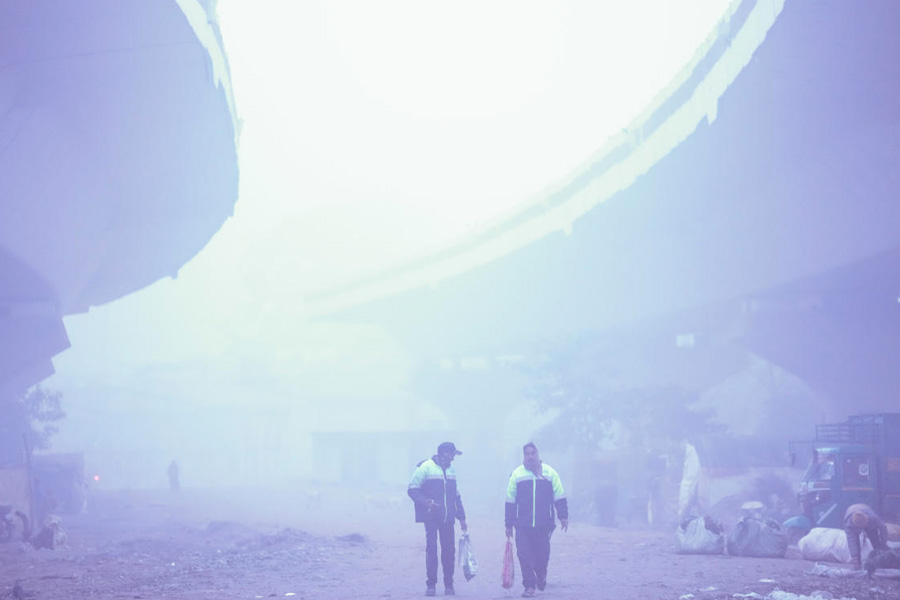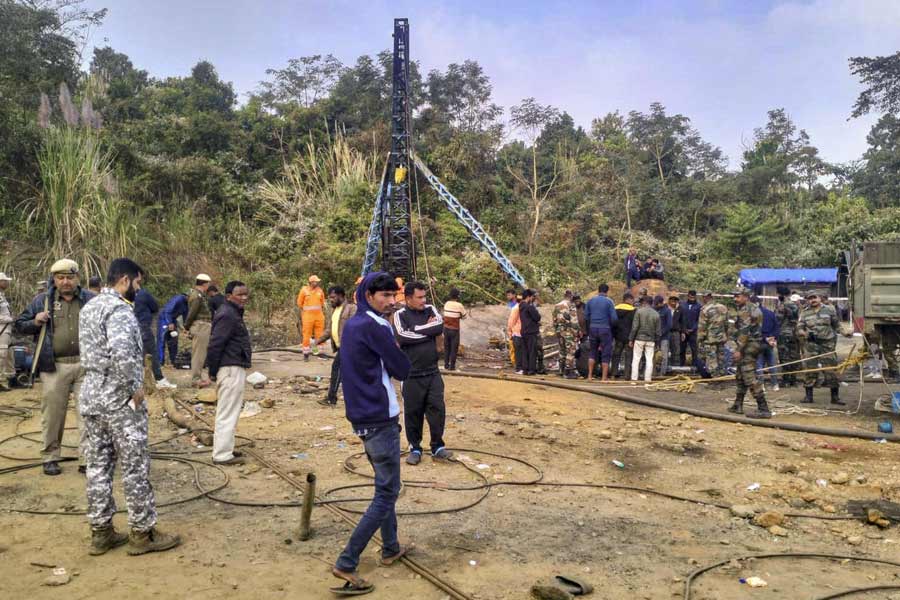US ambassador to India Kenneth Juster has said in an internal email to his colleagues here that the mission is “tracking security issues around the country, including concerns about possible civil unrest” although “for the time being, we do not see signs of this” against the backdrop of the virus outbreak.
The US embassy spokesperson in New Delhi responded to one segment of a question from The Telegraph, omitting the part that asked whether the ambassador had sent out such an email.
In the April 1 email to all employees of the mission, ambassador Juster had confirmed that one embassy official in Delhi, an American, had tested positive for Covid-19.
He sought to allay the apprehensions of the employees, saying the mission was in the process of “contact tracing” and providing medical support to those who may have been exposed to the virus.
The email was aimed at addressing the concerns of the employees after their colleague tested positive last week, sources said.
According to information available with this newspaper, the ambassador said in the email: “For the time being we remain confident of our ability to support our community should health emergencies arise. There is no doubt, however, that this may become more challenging if the Indian healthcare system begins to be overwhelmed.”
Juster emphasised that the mission’s first priority was the personal safety of its employees. “We are also tracking security issues around the country, including concerns about possible civil unrest. For the time being, we do not see signs of this, or signs that an incident will impact our community, but we will, of course continue to monitor the situation closely and keep you informed of any changes.”
In response to a question from this newspaper, the US embassy spokesperson said: “We are aware of reports of a Covid-19 case related to an embassy New Delhi employee. Due to privacy concerns, we are not able to share additional information. The US department of state has no greater responsibility than the safety and security of US citizens overseas and locally employed staff.”
The question this paper had asked was: “Has someone at the embassy tested positive? We have been told that the ambassador has sent out a detailed email mentioning it and also concerns about civil unrest in India. Is it true and would the embassy have something to say about it to the media?”
Juster had said in the mail: “I am extremely grateful to our medical professionals for their commitment to being at the mission during this challenging period (one member of the medical team has had to depart for personal medical reasons). More broadly, we are continuing to monitor developments in India very closely, ranging from the number of Covid-19 cases to the state of the healthcare system.”
The email officially confirmed that an American official in the embassy in Delhi had tested positive.
“At the outset, we must inform you that a member of our community has now tested positive for Covid-19. This individual, an American who works in New Delhi, is doing well under treatment by our health unit physicians,” Juster wrote.
The doctors are doing a preliminary analysis of the situation, he said, adding that it appears the individual has been in quarantine since the symptoms of Covid-19 set in and that he had even largely recovered.
The Covid-19 patient’s family too seems to have been following social-distancing protocols.
“These actions have greatly reduced the number of people who may have been exposed to the individual and family members. Our experts from the Centers for Disease Control and Prevention (CDC) are now in the process of doing ‘contact tracing’…,” Juster said.
The envoy said the mission appreciated the anxiety of the employees. “This is natural, though we would also like to provide some relevant perspective. Worldwide, there have been approximately 150 Covid-19 cases at US missions. With a mission of our size, it was virtually inevitable that we would have one or more cases. For that reason, the health unit has been planning and preparing for this eventuality, and has put in place a series of best practices,” he said, highlighting that the mission had a group of experts from the US department of health and human services.
The ambassador said the health team was working closely with the patient and his family and “contact tracing” everyone with whom they had come into contact recently.
“Close contacts will need to get tested, and any contacts with a high risk exposure will be requested to quarantine at home for 14 days and monitor for potential symptoms,” Juster said.
“We have our work cut out for us over the next few weeks, but that work is important and fulfilling. I am confident that we will all look back on what we are now doing as an extraordinary time in our lives and feel good that we made a difference when it mattered,” he said.
Juster said that on March 31 the mission had successfully supported “our first repatriation flight, a privately chartered aircraft that departed from Delhi with 201 passengers on board”.
“Thank you to everyone who is working so hard to help American citizens get home. We are working on several additional flights, which we hope will begin departing from Mumbai and Delhi this weekend.”
On April 1, the US embassy had on its website said: “US Mission India is coordinating closely with the US department of state and airlines to facilitate flights to the United States” for repatriation flights for citizens.
“We anticipate we will have several flights beginning the weekend of April 4. We will contact you as we develop more details,” the embassy said.
The statement said US citizens in areas in northern India, including Haryana, Uttar Pradesh, Uttarakhand, Himachal Pradesh and Rajasthan, should work with the consular section to make travel arrangements to New Delhi.
The embassy, it added, can assist with curfew passes for drivers of privately arranged vans and buses for travel to New Delhi.


